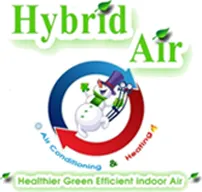A well-functioning heat pump is essential for maintaining a comfortable home environment throughout the year. However, like all HVAC systems, heat pumps have a finite lifespan and will eventually need to be replaced. Recognizing when a heat pump is failing can save you from unexpected breakdowns and ensure your home remains energy-efficient.
Several warning signs can indicate that your heat pump is nearing the end of its useful life. From a noticeable decline in heating or cooling performance to unusual noises and escalating energy bills, these symptoms can disrupt your comfort and increase your expenses. Ignoring these signs not only affects your home’s climate control but also puts extra strain on the system, leading to more frequent and costly repairs.
Recognizing the Signs of a Failing Heat Pump
Identifying the early warning signs of a failing heat pump is essential for maintaining home comfort and energy efficiency. One of the most noticeable symptoms is reduced heating or cooling capacity. If your heat pump struggles to maintain the desired temperature, it could be an indication of underlying issues that need immediate attention. Another sign to watch for is unusual noises, such as grinding, squealing, or rattling sounds, which often point to mechanical problems within the unit.
Additionally, frequent cycling on and off, also known as short cycling, can suggest that your heat pump is not operating efficiently. This issue not only affects comfort but also leads to increased energy consumption. A sudden spike in energy bills is another red flag that your heat pump may be failing. Increased costs could indicate that the unit is working harder than necessary to regulate indoor temperatures, leading to higher utility bills. Disregarding these symptoms can ultimately compromise your home’s comfort and result in costly repairs or even a complete system breakdown.
Factors Influencing the Decision to Replace a Heat Pump
Several critical factors influence the decision to replace a heat pump, making it vital to evaluate the unit’s overall condition and performance. One of the primary considerations is the age of the heat pump. Units typically last around 10 to 15 years; if your system is nearing or surpassing this age range, replacement may be a sensible option. As heat pumps age, their efficiency decreases, which can result in more frequent repairs and higher operating costs.
Another essential factor is the frequency of repairs. If you find yourself repeatedly calling for repairs, it might be more cost-effective to invest in a new, reliable heat pump. Escalating energy bills are also a key indicator that your heat pump is no longer operating efficiently. Upgrading to a modern, energy-efficient model can significantly reduce your energy expenses and improve overall performance. Modern units often come with advanced features, such as variable speed compressors and smart thermostats, which enhance comfort and efficiency. Weighing these factors will help you make an informed decision about when to replace your heat pump.
The Heat Pump Replacement Process Explained
Replacing a heat pump involves several steps to ensure a seamless transition. Our professionals start with a thorough assessment of your current system and home requirements. This helps determine the best replacement unit for your needs. Once the new unit is selected, the process begins with safely disconnecting and removing the old heat pump.
Next, our technicians prepare the installation area, ensuring all connections and supports are in place. The new heat pump is then installed, securely connected to your home’s electrical and duct systems. After the physical installation, we conduct comprehensive testing to ensure the system operates correctly. These steps are crucial to providing efficient and reliable performance from your new heat pump.
Benefits of a New Heat Pump Installation
Upgrading to a new heat pump brings several advantages. Modern units offer improved energy efficiency, which translates to lower utility bills and reduced environmental impact. Enhanced technology provides better temperature control, ensuring a more comfortable home environment. New heat pumps are also quieter and come with features that improve indoor air quality.
To maximize the lifespan and performance of your new heat pump, regular maintenance is key. This includes routine filter replacement, coil cleaning, and professional inspections. These practices help maintain system efficiency and prevent minor issues from becoming major problems. Investing in a new heat pump not only enhances your home’s comfort but also provides peace of mind knowing your system is reliable.
Conclusion
Replacing your heat pump is a significant decision that impacts your home’s comfort, energy efficiency, and overall performance. Recognizing the signs of a failing heat pump and understanding the factors that influence replacement can help you make an informed choice. Our professionals at Hybrid Air, Air Conditioning & Heating Inc ensure a seamless replacement process, from selecting the right unit to expert installation and testing.
Investing in a new, energy-efficient heat pump offers numerous benefits, including lower energy bills and improved comfort. Regular maintenance further enhances the system’s lifespan and performance, providing reliable operation for years to come. Ensure your home stays comfortable and efficient by considering a new heat pump installation.
Schedule your heat pump service in Pico Rivera, CA with us today. Our experts are ready to help you find the perfect system for your home. Experience the enhanced comfort and efficiency a new heat pump brings by contacting us for a consultation.



